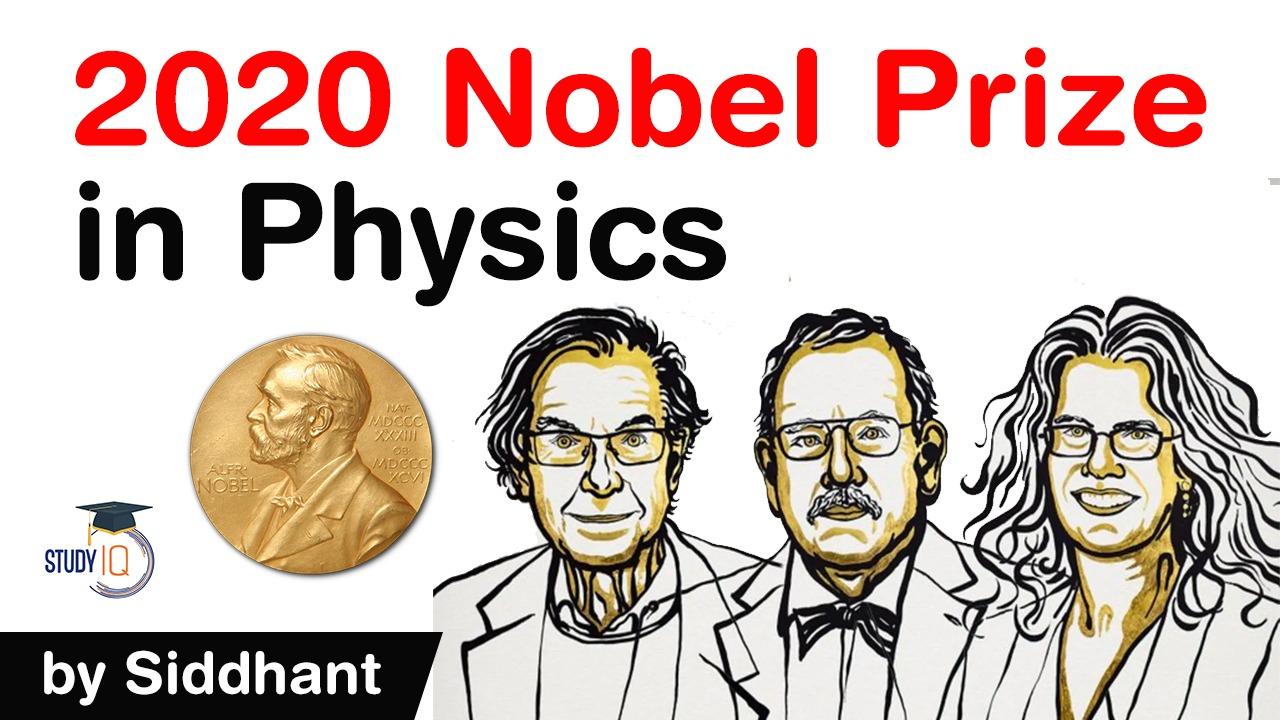Table of Contents
NOBEL PRIZE
- On Tuesday, the Royal Swedish Academy of Sciences decided to award one half of the 2020 Nobel Prize in physics to Roger Penrose and the other half jointly to Reinhard Genzel and Andrea Ghez for furthering the understanding of black holes, the most “enigmatic” objects in the universe.
- Earlier on Monday, three biologists shared the Nobel Prize in medicine for the discovery of the vaccine for the hepatitis C virus.
ROGER PENROSE
- Sir Roger Penrose (born 8 August 1931) is an English mathematical physicist, mathematician, philosopher of science and Nobel Laureate in Physics. He is Emeritus Rouse Ball Professor of Mathematics at the University of Oxford, an emeritus fellow of Wadham College, Oxford and an honorary fellow of St John’s College, Cambridge and of University College London.
- Penrose has made contributions to the mathematical physics of general relativity and cosmology. He has received several prizes and awards, including the 1988 Wolf Prize for physics, which he shared with Stephen Hawking for the Penrose–Hawking singularity theorems, and the 2020 Nobel Prize in Physics

ANDREA MIA GHEZ
- Andrea Mia Ghez (born June 16, 1965) is an American astronomer and professor in the Department of Physics and Astronomy at UCLA, known for studying the center of the Milky Way galaxy.
- In 2020, she became the fourth woman to be awarded the Nobel Prize in Physics

REINHARD GENZEL
- Reinhard Genzel (born 24 March 1952) is a German astrophysicist, co-director of the Max Planck Institute for Extraterrestrial Physics, a professor at LMU and an emeritus professor at the University of California, Berkeley.
- He was awarded the 2020 Nobel Prize for physics “for the discovery of a supermassive compact object at the centre of our galaxy”, which he shared with Andrea Ghez and Roger Penrose.

So what are black holes?
- A black hole is formed when stars collapse and can be defined as a space in the universe with an escape velocity so strong that even light cannot escape it.
- Escape velocity is the speed at which an object must travel to override a planet or an object’s gravitational force. For instance, for a spacecraft to leave the surface of the Earth, it needs to be travelling at a speed of about 40,000 km per hour.
So what does the award winners’ work tell us about black holes?
- Penrose has been awarded the prize for the discovery “that black hole formation is a robust prediction of the general theory of relativity,” while Genzel and Ghez have been awarded the prize for the discovery of a “supermassive compact object at the centre of our galaxy.”
- Penrose’s work has shown that black holes are a direct consequence of Albert Einstein’s general theory of relativity.
So what does the award winners’ work tell us about black holes?
- Einstein himself did not believe that black holes exist and presented his theory in November 1915, providing a new way to look at and understand gravity that shapes the universe “at the largest scale”. Gravity also shapes space and influences the passage of time. It is this gravity, which is so great inside a black hole that is able to bend space and slow down time.
- Penrose used Einstein’s general theory of relativity in order to prove that the process of formation of black holes is a stable one. He proved that black holes exist and described them in detail back in 1965, ten years after Einstein died.
So what does the award winners’ work tell us about black holes?
- Genzel and Ghez, on the other hand, have discovered that an invisible and an extremely heavy object governs the stars’ orbit at the centre of the Milky Way. This extremely heavy object has the mass equivalent to 4 million solar masses and is packed into an area about the size of our solar system.
- Essentially, their work tells us that at the centre of our galaxy the Milky Way lies an invisible supermassive object, of which a black hole provides a reasonable explanation. Physicists have been suspecting the existence of a black hole at the centre of our galaxy for over 50 years now.
So what does the award winners’ work tell us about black holes?
- In order to see through to the middle of the Milky Way, Genzel and Ghez worked on developing methods and used some of the world’s largest telescopes.
- By observing the orbits of the stars’ that are closest to the centre of the Milky Way, the physicists think that the black hole could most likely be hiding in Sagitarrius A*, a source of radio waves around which all stars in the Milky Way orbit. In other words, the existence of a black hole at the centre of our galaxy is what the physicists believe is what pulls a “jumble of stars,” causing them to “rush around at dizzying speeds”.
Where does research on black holes go from here?
- While work done by Penrose has established that black holes are a “robust” consequence of the theory of relativity and that they are formed naturally in very overdense regions, thereby proving that their formation is a stable process, the theory ceases to apply at the centre of the black hole called the singularity– “a boundary at which all the known laws of nature break down”.
- This essentially means that the extent to which the theory of general relativity applies to the structure of black holes requires further probing and questions about the internal structure of black holes still remain.
Latest Burning Issues | Free PDF

























 WhatsApp
WhatsApp